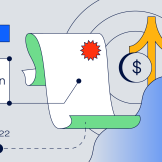Data Readiness: The Key to Effective Mission-Driven AI in Government
As government agencies deploy AI and machine learning (ML) to fulfill mission-critical functions, data readiness — the preparation of data to be accurate, accessible, secure, and fair — becomes critical. Data readiness is more than technical setup; it’s the foundation that ensures AI systems deliver reliable insights, support equitable decisions, and maintain public trust. TheRead… Read more »







